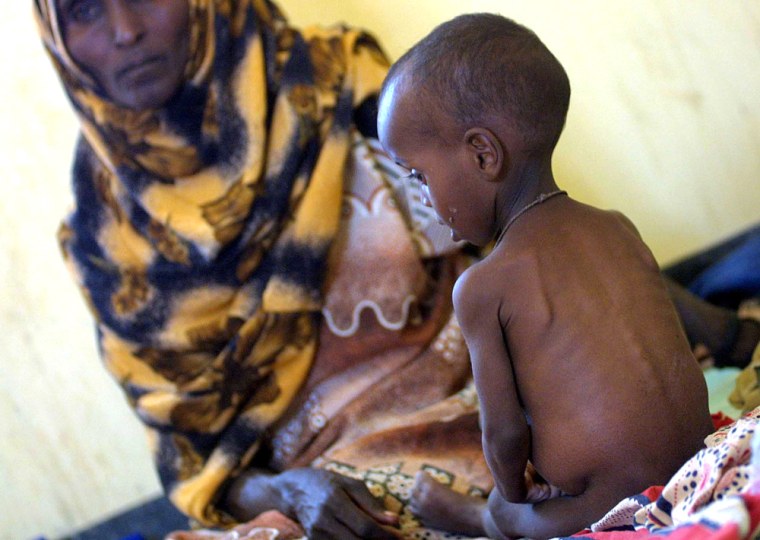The U.N. food agency will soon run out of food needed to feed some 3.5 million Kenyans facing prolonged drought because it has received a fraction of the required funding, officials said Saturday.
The World Food Program has enough cereal to last until April but will run out of other staples by month’s end, program spokesman Peter Smerdon said.
The program needs $225 million to buy more than 33,000 tons of food each month until February 2007 but has received only $28 million, he said.
“If we don’t get any more food aid it will be a catastrophe,” Smerdon said. “We are already on the edge because food is running out and we are supposed to be feeding people until February next year.”
World Food Program Executive Director James Morris arrived Saturday in El Wak, 420 miles northeast of the capital, Nairobi. Food program officials called the village an example of the effects of prolonged drought in the Horn of Africa, where 11.5 million people need food aid.
Dozens of people have died of hunger in drought-stricken parts of northeastern and eastern Kenya, according to local media. The government has declared the situation a famine and a national disaster, but has not given a death toll.
“We will urgently need more help in the next 10 days because it takes time to buy, ship and distribute food. It is not something you can do overnight,” Morris said. “If we get a break in the food pipeline, then malnutrition will go up very seriously.”
El Wak resident Mohamed Ibrahim, 55, said that 160 of his 200 camels and 97 of his 100 cattle had died.
“We don’t just need food, we need other kinds of help as well,” Ibrahim said. “People say we should change the way we live but there are no towns, no businesses, no agriculture that we can do.”
Ibrahim Younis, emergency coordinator of a feeding center in El Wak run by a Belgian aid agency, said more children are coming to the group for help.
“The key problem is water because these children are malnourished and a lack of hygiene means they get diarrhea, which pushes them over the edge,” he said.
